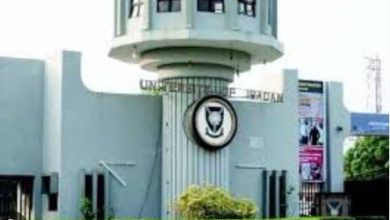
Confusion on gun license revocation
Stories filtered towards the end of last month that President Muhammadu Buhari had signed an Executive Order that revoked private individuals’ licenses on firearms or shotguns in Nigeria.
According to the said Order, withdrawal of the licenses will take effect from June 1, 2019 and that all those in possession of such firearms must surrender them at the nearest police station alongside the licenses.
In effect, the withdrawal will ensure that only authorised officers of the Nigeria Police Force, Nigerian Army and select security agencies are authorised to carry arms. The stories, which dominated the social and conventional media, indicated that even Civil Defence agents and some other security agents are no longer allowed to carry weapons from June 1.
The President was said to have signed the Executive Order on May 22, 2019 in response to threats by some Niger Delta militants to declare a Niger Delta Republic and secede from Nigeria. ADVERTISEMENT Curiously however, beside generating heated argument in the polity, there was no clear attribution in all the stories carried by media and no indication as to how and when President Buhari signed the order revoking the licences.
The Presidency neither confirmed nor denied the stories, and the police said they are not aware of it. The police denial came barely 24 hours after the House of Representatives passed a resolution asking Buhari to reverse it.
Force Public Relations Officer DCP Frank Mba reportedly said, “I am not aware of the order and we cannot confirm the order.” The House of Reps’ resolution followed the consideration and adoption of a motion sponsored by Nnenna Elendu Ukeje, who argued that the Executive Order is targeted at legal gun owners while there is no plan or policy to mop up small arms and light weapons used for violent crimes across the country.
The lawmaker expressed dismay that the security challenge in the country, which was before now restricted to the North East and North Central, has spread to the North West and other parts of the country, leading to increased number of deaths arising from terrorism, kidnapping, banditry and other violent crimes. She however said the high number of illegal firearms in the country contributes to the increase in violent crimes.
The lawmakers in their contributions said the Executive Order cannot override an Act of Parliament. Instead, they urged the President to sign into law the bill on the Establishment of the National Commission Against the Proliferation of Small Arms and Light Weapons.
The MPs said many citizens would be left vulnerable and would be at the mercy of criminals, terrorists, bandits and kidnappers unless the order is rescinded. They called on security agencies to rather go after the criminals using unlicensed firearms instead of chasing those who obtained their weapons legally.
However, President Buhari’s National Assembly Liaison Officer, Senator Ita Enang had on Friday declined to speak on the issue.He was quoted as saying, “It is not appropriate for me to speak on it. That is my response.”
Amidst this confusing narratives, we recall that there was a fresh warning by the United Nations in 2017 about the danger of the influx of small and light weapons into West Africa. At a conference organized by the UN Office for West Africa and the Sahel, it was noted that arms worth $35 million were entering the sub-region annually.
The conference further estimated that seven to 10 million illegal weapons flood West Africa annually, saying Nigeria is the major destination of the weapons. In all, the global body says that Nigeria alone accommodates 70 per cent of the 500 million illegal weapons in West Africa.
Here lies the need for the Federal Government to, instead of chasing shadows at home, do something urgent by guarding our porous borders that make it easy for the influx of illegal weapons from neighbouring countries ravaged by war.



